Brookwood Elementary School’s Camp Read S’more begins the same way every morning.
“I don’t know, but I’ve been told!” shout 10 campers.
The other 90 students in the cafeteria echo, “I don’t know, but I’ve been told!”
“Summer reading’s good as gold!” Summer reading’s good as gold!
“Come to camp and do your best!” Come to camp and do your best!
“We won’t give our brains a rest!” We won’t give our brains a rest!
“Summer!” Summer!
“Reading!” Reading!
“Summer!” Summer!
“Reading!” Reading!
“READING!” shout all 100 students together to end the cheer.
A different class leads the Camp Read S’more cheer each day, but the outcome is the same – building students’ excitement for reading and not giving their brains a rest.
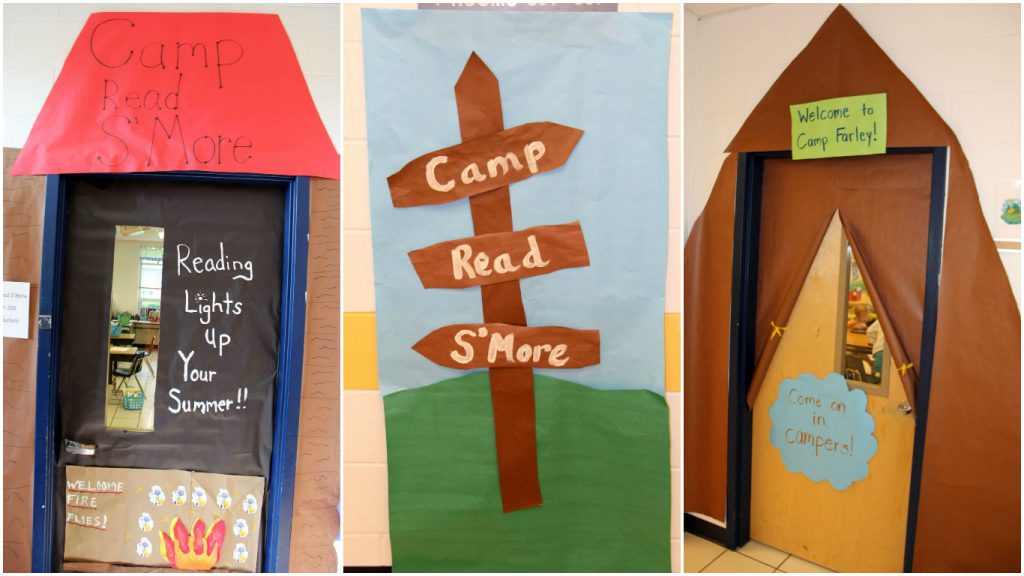
“The more kids read, the better they read,” said Grace Unger, Brookwood’s reading specialist and camp organizer. “We also have found that research shows over the summer there is a significant decline in reading if they don’t continue with the process, so this program just allows kids to keep in the swing of reading.”
“It also is an opportunity to kind of make it fun because it’s a little bit less structured than the regular classroom during the school year,” she continued. “It’s a way for us to help bring back the joy to reading and also keep them reading.”
And they are reading.
They are reading in tents and around paper campfires. They are reading on benches and on their backs.
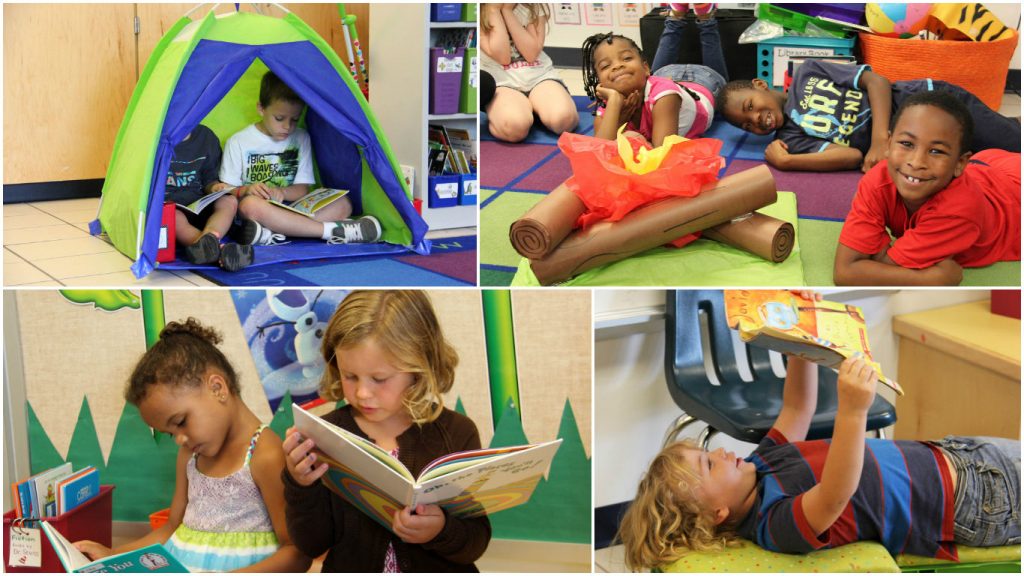
And that’s just at Brookwood.
The school division’s summer literacy program is available to rising first-, second- and third-graders at all Title I elementary schools to help prevent what is known as summer slide.
As Unger noted, during the summer months there is potential for students to lose some of the achievement gains made during the previous school year, especially students who do not have access to high-quality summer learning or enrichment experiences.
The program is offered in collaboration with the Virginia Beach Public Library and is free to students, including breakfast and transportation. Additionally, the program is supported by organizations like the Virginia Museum of Contemporary Art (MOCA) and the SPCA, which provide a variety of activities designed to strengthen students’ reading and writing skills.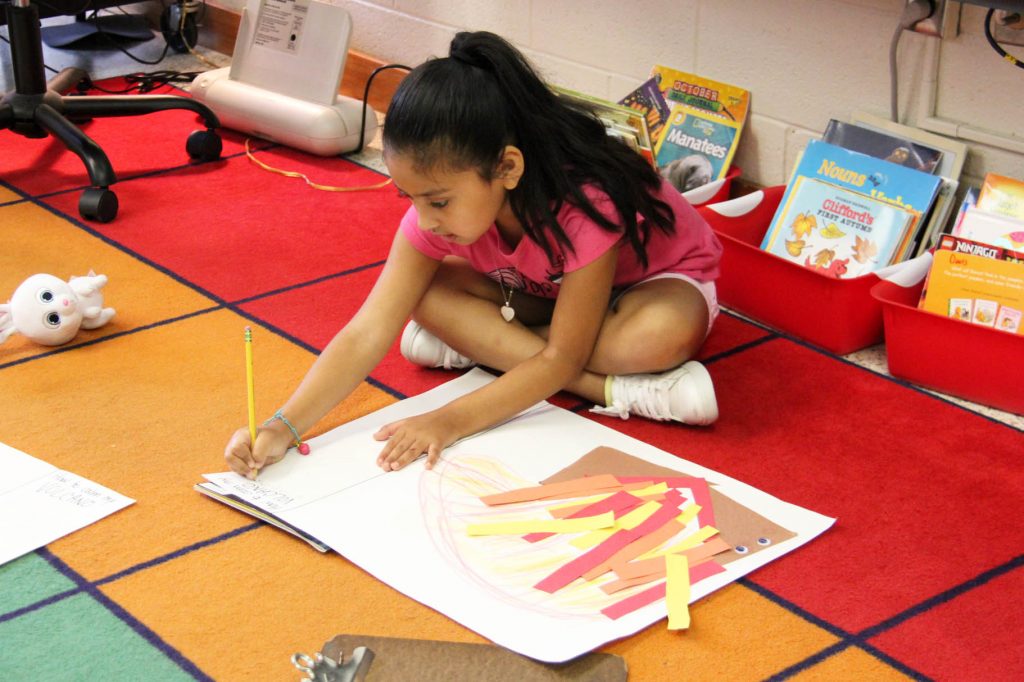
While students enjoy a “less-structured” summertime environment, teachers still use reading comprehension strategies they employ throughout the year.
When reading Not Norman, Brookwood teacher Holly Bucholz asked students to predict what will happen to Norman the goldfish when his owner makes it clear he wants to trade him for a pet that does more than float in a bowl.
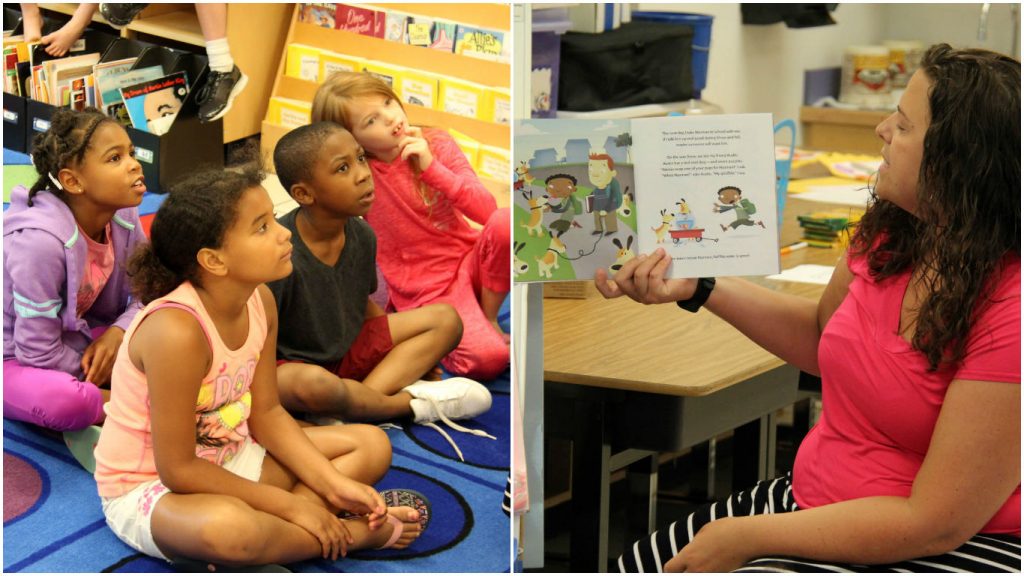
“Maybe he’ll get a dog who can play catch,” offered one student.
“Or a cat,” said another.
“A cat doesn’t catch!” noted a classmate.
Down the hall, Kelly Farley asks her young campers to practice initial letter sounds to build fluency.
“We did read Henry’s Stars,” said Farley pointing to their Read S’More campfire. “Can anyone think of other ‘st’ words?”
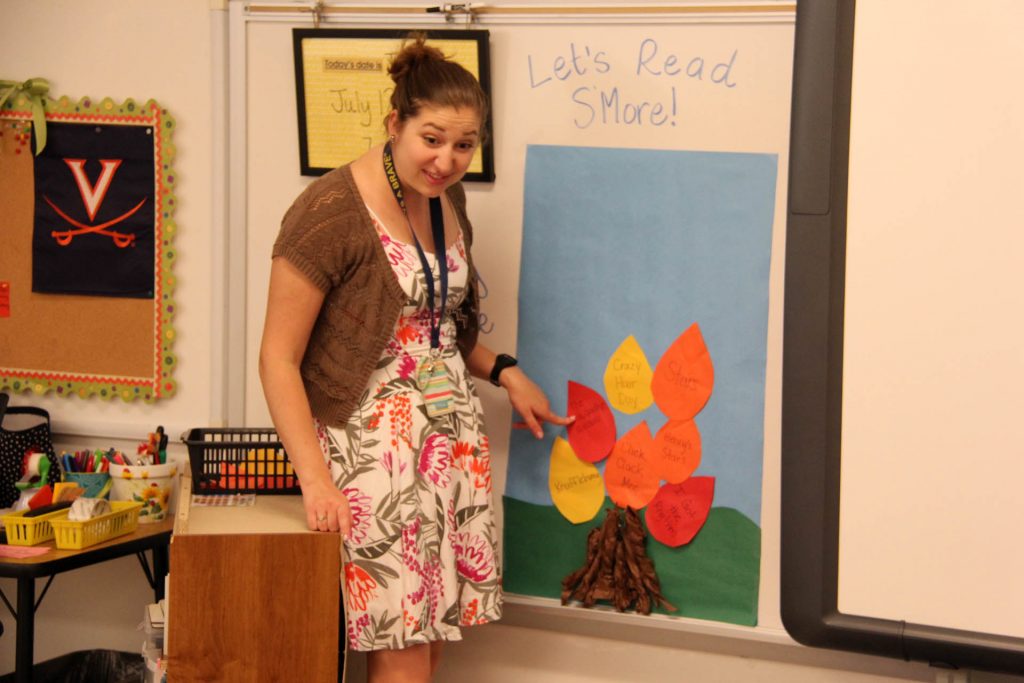
“Stop!” called out one rising first-grader.
After waiting for more responses, Farley prompted, “What about in my house? To get to the second floor I have to climb up the…”
“STAIRS!” said everyone.
Another student responded, “Stand.”
“Good,” affirmed Farley. “If I’m not sitting I might be standing.”
Students are engaged in small group instruction, whole group reading, online resources, activity centers and independent reading throughout the summer program.
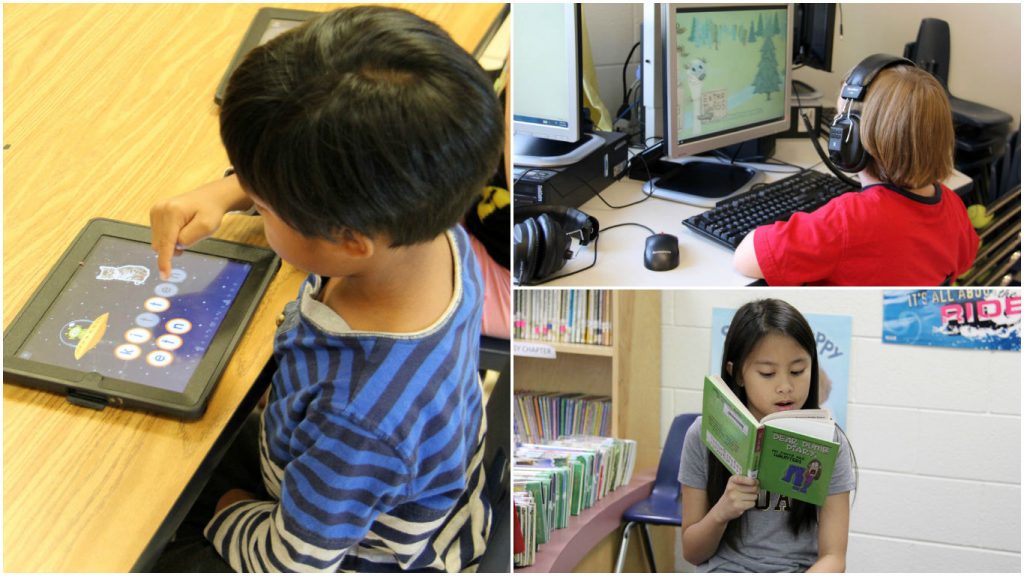
Using the time to also build social-emotional skills is a focus for Melissa Smith, reading specialist at Parkway Elementary School.
In addition to having students write in a gratitude journal and hosting morning meetings, she intentionally selects books that help teach different skills such as empathy, humility, persistence and managing emotions.
My Mouth is a Volcano! by Julia Cook is one of Smith’s favorites, and she used it in a recent class to discuss with students how they might interrupt less and listen more as Louis, the book’s main character, has to learn.
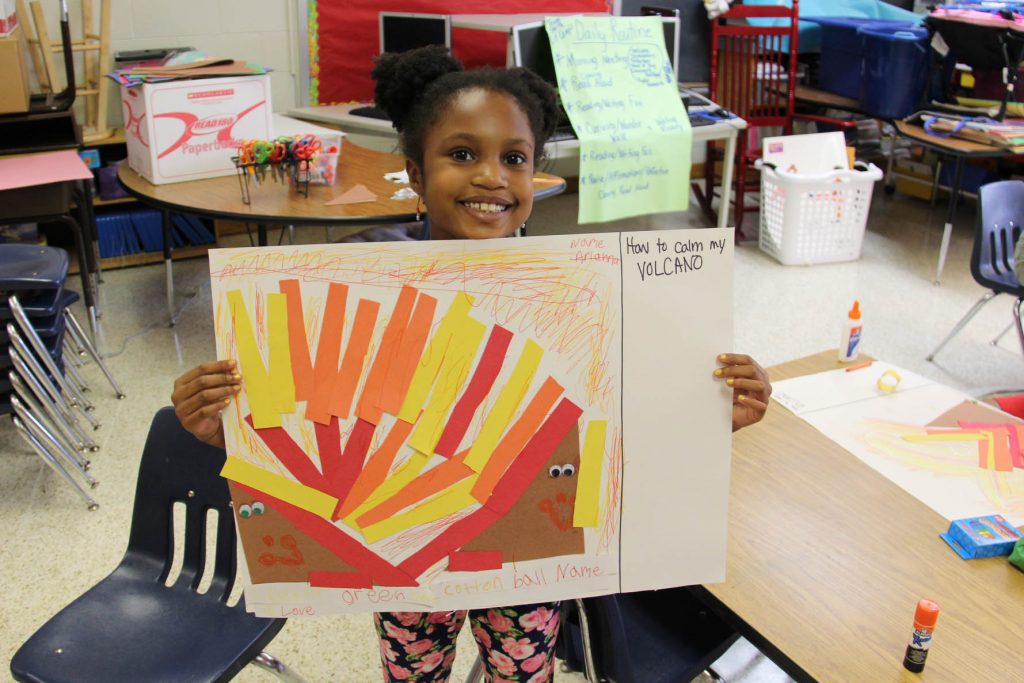
“It’s a very engaging text and it’s relatable to the kids,” said Smith. “They all erupt or interrupt and [Louis] would often interrupt. Then it happened to him. He had to be reflective, ‘Oh, so this is what everyone feels like.’ I use it to help start a conversation of how do you stop it and then what do you do.”
Students created their own volcanoes leaving space on the side to brainstorm strategies for minimizing “eruptions.”
Down the hall, Parkway teacher Richlan Barger had students brainstorming questions to answer about mystery animals that eventually will be revealed to them when the capsules dissolve in the cups of water by their seats.
What is the animal’s name? Where does it live? What does it eat?
“I think mine will be a red dinosaur,” said Caleb, who planned to name the animal “Red-osaurus.”
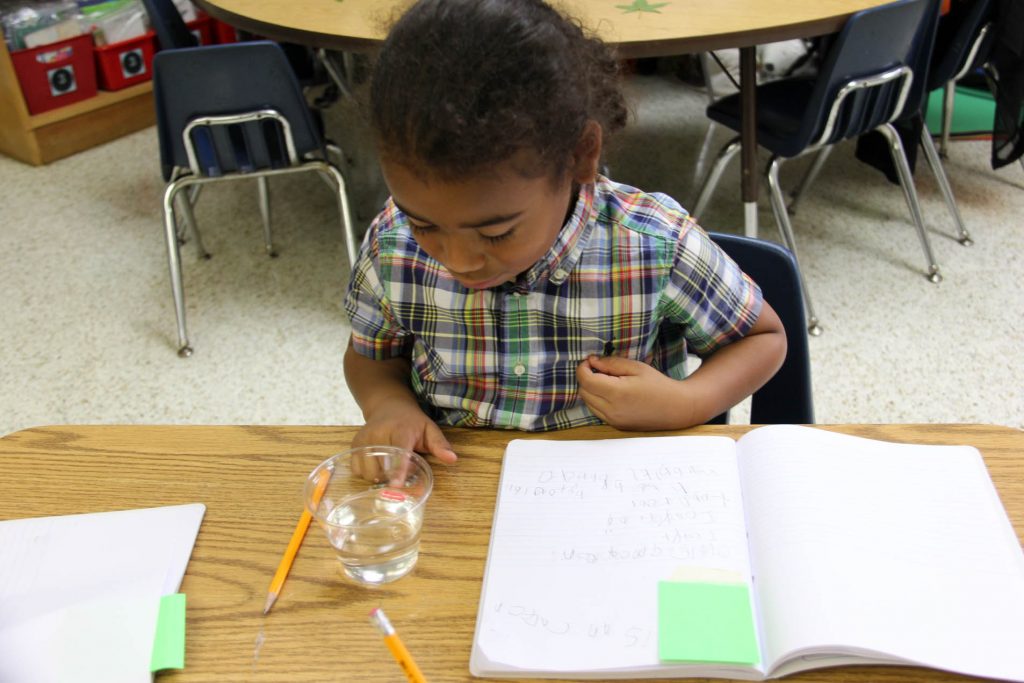
Caleb continued to explain that his red dinosaur “eats grass and lives where the TRex lives, all the way in the back.”
Purple elephants, yellow monkeys and blue fish are being described by other students in their writing journals.
The day before, rabbits were the real mystery animals at Parkway courtesy of the SPCA, according to Tana Foster, a Parkway teacher.
“She read some books about animals and then brought in a cage that was covered,” explained Foster. “They had to take a guess of what was in there. Then she revealed that it was two rabbits.”
Representatives from MOCA also visited Parkway to share lessons about Picasso and lead students in drawing self-portraits.
“We’re trying to get them engaged in a fun way,” said Foster, “At home, they may not have anybody to read with. They may not get a chance to go to the library; whereas, here we have MOCA come in. The SPCA visits every week. We have the youth library come in. They get prizes for the amount of books they read on their reading logs. The kids seem to really love it.”
Parkway principal Krista-Barton Arnold agreed.
“I’ve got great teachers working here this summer and they’re making it so much fun,” she said. “A lot of my students are upset at the end of the school year. They want to come to school. This program is important because it’s giving them opportunities they might not have at home and keeping them reading.”
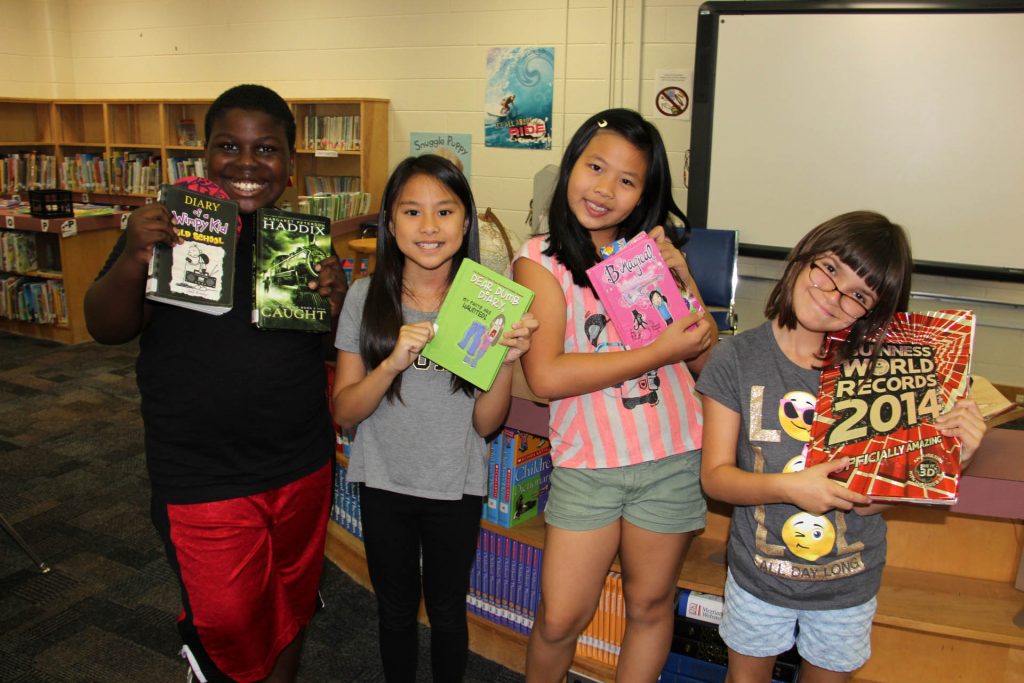
Christine Alarcon, Brookwood principal, also observed how happy students seem to be at school.
“They come in with smiles on their faces and skipping down the hallway,” she said. “It’s all about just making reading fun. They are doing lots of hands-on learning. There’s lots of movement and activity.”
“We’ve also tried to incorporate lots of poetry and song,” added Unger. “So they’re getting the reading but that poetry, song and movement also helps as they’re learning to read.”
Ryan, a Brookwood student, is enjoying his time at Camp Read S’more.
“It’s fun to read because you get to do all these cool things with reading, and you learn more through reading,” he said.
As they like to say at Camp Read S’more, “The s’more you read, the s’more you know.”
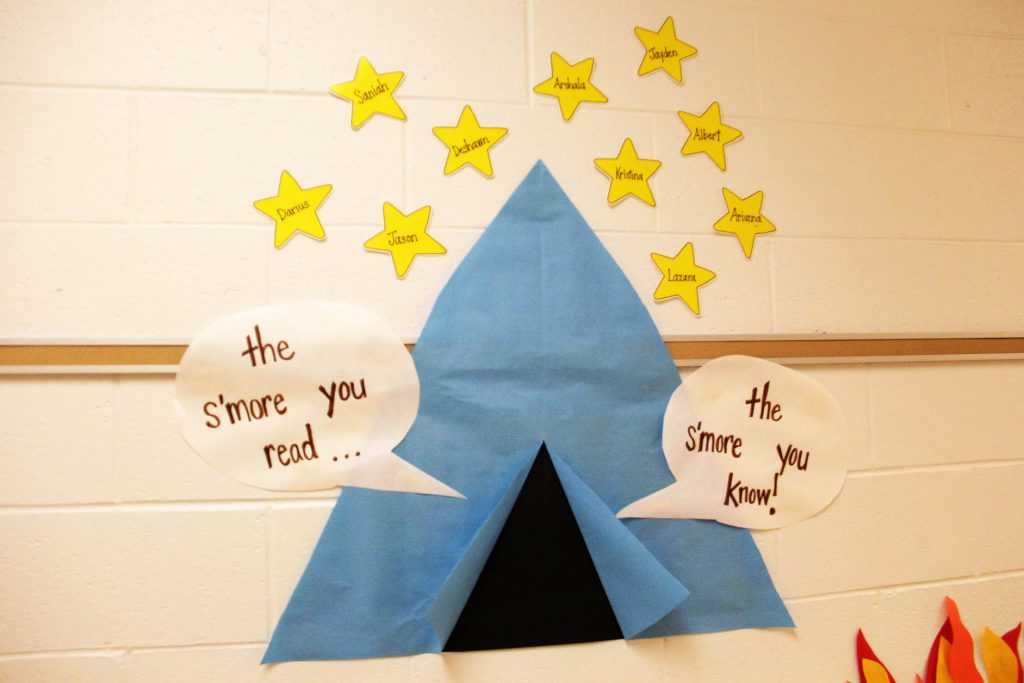
Unger hopes Ryan’s perspective is one all students at Camp Read S’more have throughout their school years and as adults.
“Bringing joy to reading,” she said, “that is what creates lifelong readers and independent readers and hopefully they are getting that opportunity just by having more time to read.”
